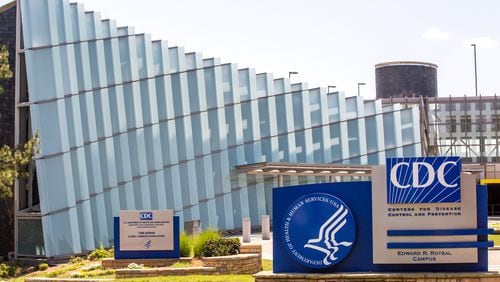While President Donald Trump’s budget plan is unlikely to gain approval, any cutbacks in Washington could have a major impact on services in Georgia.
Home to eight major military installations, Georgia could be a major beneficiary of any increase the Trump administration proposes in military spending.
Cuts to nonmilitary spending, however, could be big for the Atlanta-based U.S. Centers for Disease Control and Prevention, for universities that receive tens of millions of dollars in federal research grants, and for state government, which receives about 29 percent of its funding from the federal government for everything from school lunches and nursing home residents to workforce training and environmental protection.
Georgia is also home to about 70,000 federal jobs, and some of those could be at risk.
It was unclear Tuesday how much the president’s plan would include to help deepen the Port of Savannah. Dredging is already underway, paid for with money borrowed by the state. Officials in Georgia are hoping the federal government keeps its earlier commitment to put major money into the project.
The president has called for an end to the Department of Housing and Urban Development’s Community Development Block Grant program, which supports urban renewal projects, and health care advocates say he is pushing for major cuts in prevention and public health grants. One left-leaning group said Tuesday that under the proposal Georgia could lose $118 million in grants from the National Institutes of Health.
About half of the federal money the state government receives goes to Medicaid, which provides health care to about 2 million poor and disabled Georgians and pays for Georgia’s elderly to live in nursing homes.
Below are some of the agencies slated to receive big federal money during the upcoming fiscal year and therefore could be most affected by changes in Washington:
Department of Community Health (Medicaid) — $7.6 billion
Department of Education (school nutrition programs, others) — $1.9 billion
Department of Transportation — $1.6 billion
University System of Georgia — $1.4 billion
Department of Human Services (food stamps, other programs) — $1 billion
Department of Public Health — $397 million
Georgia Department of Early Care and Learning — $375 million
Department of Community Affairs (housing and community programs) — $184 million
Department of Behavioral Health & Development Disabilities — $144 million
Department of Labor (unemployment, workforce development) — $117 million
Department of Economic Development (workforce development) — $74 million
Department of Natural Resources (environmental protection, other programs) — $72 million
Georgia Bureau of Investigation (criminal justice coordination) — $68.5 million
Department of Defense — $53.2 million
Source: State budget, fiscal 2018; University System of Georgia
About the Author








